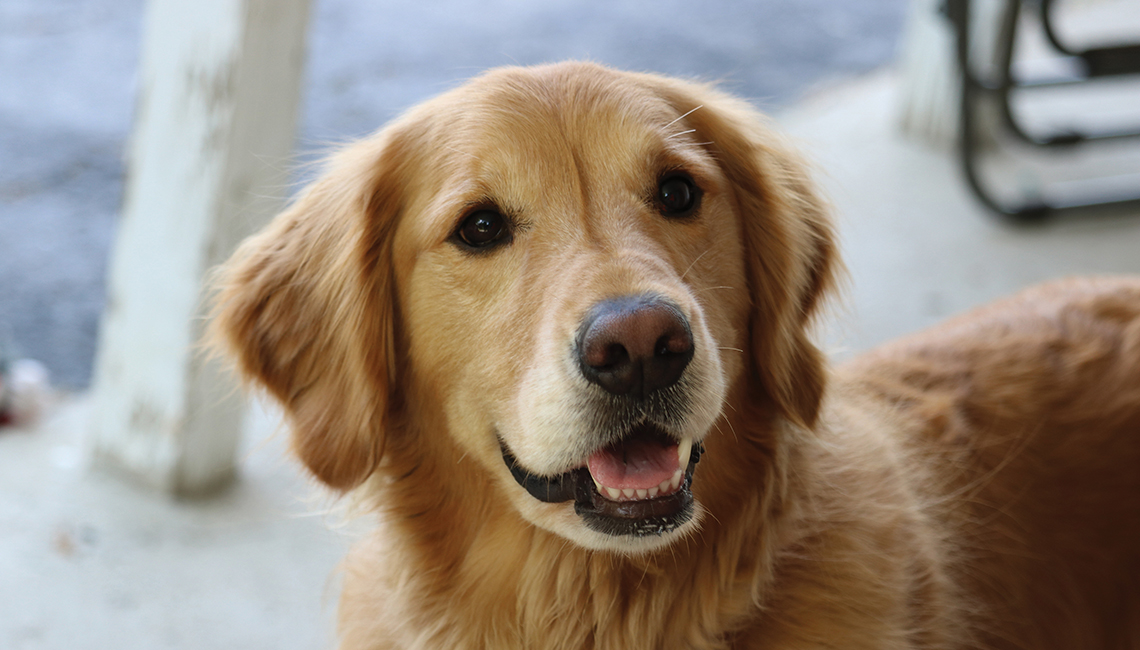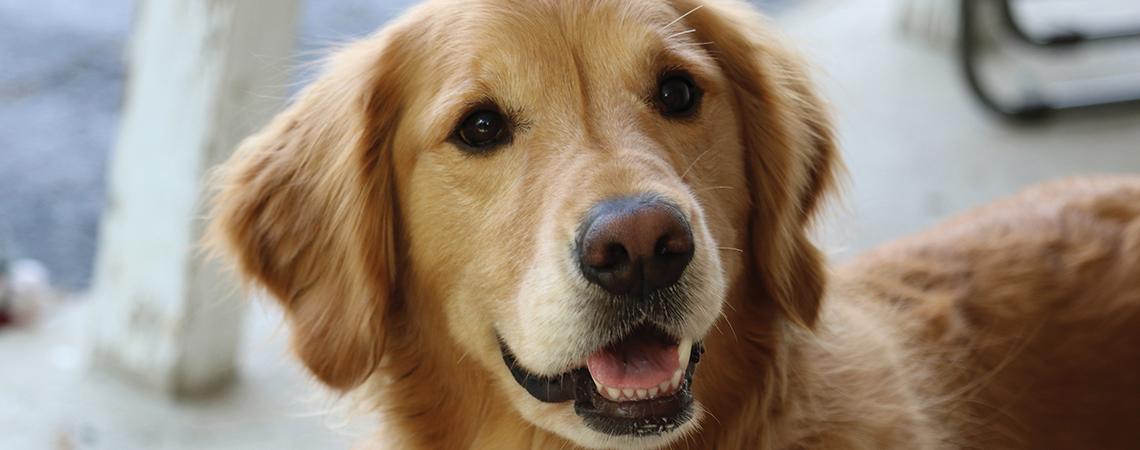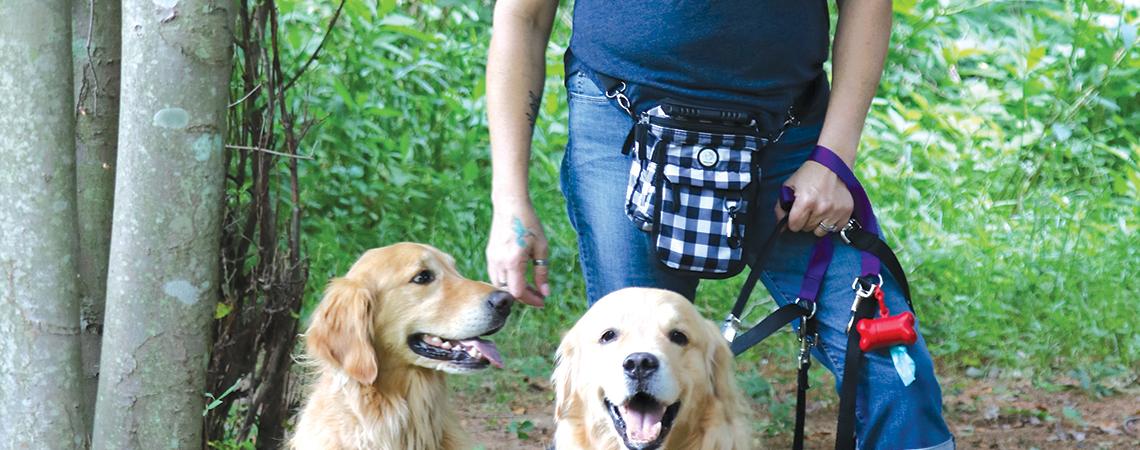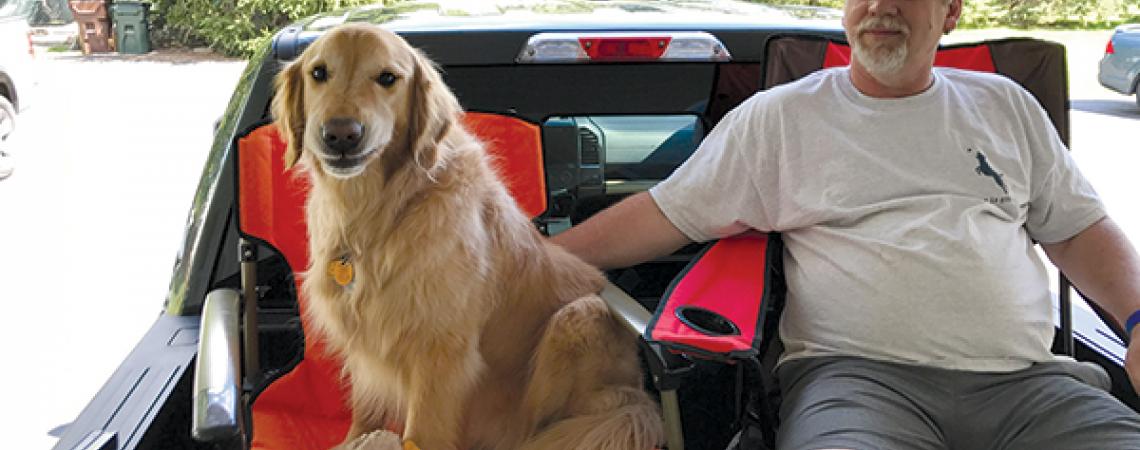Golden retrievers are beautiful and affectionate dogs. They’re great with children and get along with other dogs and, usually, cats. Those characteristics make them among the most popular dog breeds. Sadly, more than half of them develop cancer, which is in fact the leading cause of death in all dogs age 2 and older.
That’s why, in 2012, the Morris Animal Foundation launched one of the largest, longest-running animal-health studies in history. The Golden Retriever Lifetime Study (GRLS) enrolled 3,044 dogs to be followed for their entire lives.
The researchers’ aim is to discover nutritional, environmental, and other risk factors for cancer and other major health problems in all dogs. The owners and their veterinarians collect health and behavior information on every dog for the researchers.
Nine-year-old Montana is part of a nationwide study about golden retrievers that researchers hope will benefit all dog breeds.
In Ohio, 102 golden retrievers were enrolled in the study. Among them is Montana, now 9, who lives in Oberlin with his owners, Kim and Scott Faulks, members of Lorain-Medina Rural Electric Cooperative.
Montana was a full brother to Ryder, the Faulks’ first golden retriever. “Ryder gave us three wonderful years,” says Kim Faulk. “He was never upset or angry, always loving and trusting.”
The Faulks were devastated when Ryder died of cancer at only 3 years old. Ryder is the reason that Montana is a “Hero,” which is what GRLS participants are called.
“We thought it was a great idea to enroll his full brother in the study,” Faulk says. “We wanted to see if we could get some answers.”
The Faulks’ third golden retriever, Spenser, was a GRLS Hero, too. Sadly, Spenser (named for the Spenser: For Hire mystery series) also died of cancer about a year ago.
“Spenser was a joy,” Faulk recalls. “He had the cutest puppy face until the day he died.”
“We’ve lost two retrievers to this horrible thing,” she says. “My husband and I — and Montana — are giving back, and that’s all we can do.”
Besides Montana and their golden retriever puppy, Jake, the Faulks have three cats: LuWeeze, Inky, and Rambo, who, incidentally, all adore Montana.
The GRLS dogs’ owners must keep detailed records about the dogs’ diet, behavior, sleeping habits, and more. They fill out an annual questionnaire that Faulk says takes two to three hours to complete.
“They want to know about chemicals you use at home, whether or not you put chemicals on your lawn, and other environmental information,” she says.
The owners’ other major commitment is to make sure the dogs get needed medical care and a thorough annual physical from a veterinarian, who also contributes to the study. The Faulks’ animals are cared for by Dr. John Douds of Douds Veterinary Hospital in Oberlin, where Faulk works as a pet groomer.
“I really feel like it’s a privilege as a private practitioner to be able to make a significant difference in the future health of our pets,” Douds says. “I wasn’t able to go into research after graduation, so at least this may help make up for a part of that.”
Since the GRLS began, Douds has cared for four golden retrievers, owned by three different clients. Two of the dogs succumbed to cancer.
Douds says the participating veterinarians submit multiple samples of hair, nails, urine, and blood. There is an extensive questionnaire to fill out online after every visit, and many owners find it easier to leave their dog at the office for part of the day, since the process takes a while.
“The study requests seem to change a little from year to year as the scientists keep learning new facts,” he says.
Douds describes the GRLS as “the first large-scale prospective study of dogs.” Instead of looking at past records to try to find answers (a retrospective study), this 3,000-dog investigation follows the health of the very young all the way through their end-of-life changes.
Douds adds, “Goldens are prone to many types of cancer and are an ideal breed to monitor, because of their size and temperament. Although cancer is the prime target, some very smart people working with the information we send may be able to uncover the genetics and risk factors for many other illnesses in multiple canine breeds.”
Faulk is grateful for the GRLS. “Too many people are losing precious pets to cancer,” she says.












